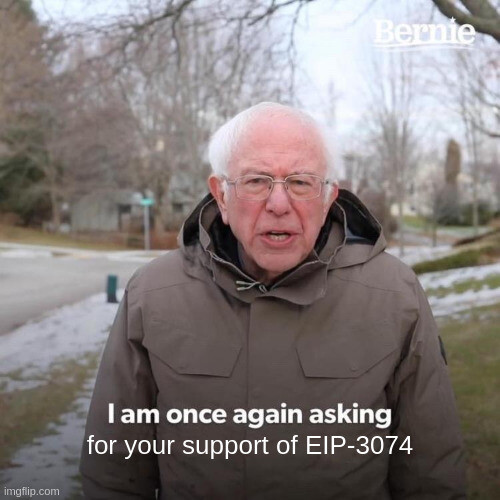Early last year, I felt there was a real possibility of EIP-3074 being included in the Berlin hardfork. The authors pushed to get the EIP into a stable state, but it was a bit too late and there were still questions around the security of it.
To resolve these security concerns, we had two security audits of the specification [1, 2] which both came back clean. We then reapplied the EIP for CFI for London. It was subsequently rejected to keep London simple, but with the understanding it would again be considered for Shanghai.
Well – Shanghai is finally just around the corner! The EIP has been stable over the last year and there are no additional changes to consider. I would like propose the EIP for Shanghai (again)! There are many resources to understand the benefits of EIP-3074, however I want to point out two specific points that are particularly relevant today:
- Despite EIP-4337 existing for over 1 year, I’m not aware of any wallets that support it. For better or worse, core protocol changes are schelling points and EIP-3074 could quickly be adopted by major wallets (many of them support the EIP) and drastically improve UX on Ethereum.
- On a more practical front, smart contracts are still plagued with dealing with two types of ether (
ethandweth). EIP-3074 provides the functionality to actually remove this distinction for contracts, which has been a very rough edge for developers.
